Floods cripple key transport highway for third day
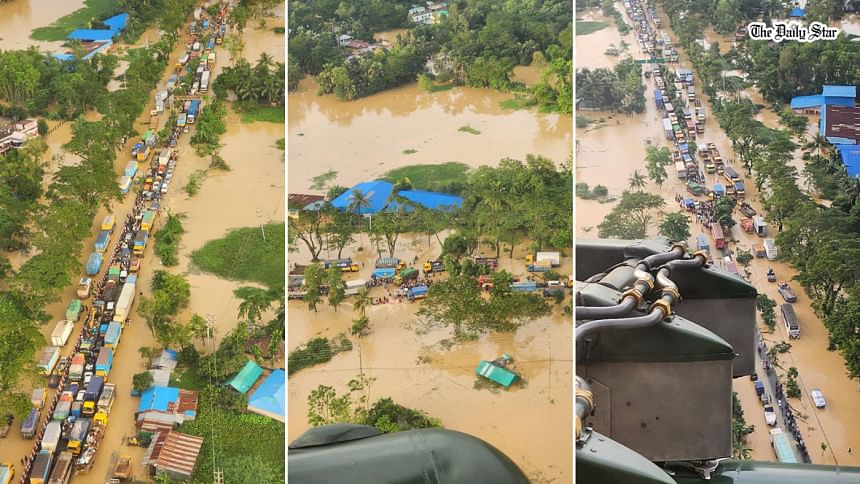
Transport activities, including movement of imported goods and those meant for exports, have been halted since Thursday as the Dhaka-Chattogram highway, the lifeline of the country's economy, has been submerged by flash floods brought on by heavy rainfall and the rush of water from upstream.
As a result, transport of export containers and imported goods to and from the Chattogram port, the country's biggest seaport which handles around 90 percent of the nation's trade, was stopped for a third day yesterday.
Devastating floods have also impacted the transport of essential commodities from Chattogram's Khatunganj, one of the major wholesale markets in the country.
This latest disruption comes just a couple of weeks after vehicular movement on the highway was severely disrupted during the students' protests that led to Sheikh Hasina's ouster on August 5.
Traders could not estimate losses immediately but feared that the supply chain would break down if the situation continued.
Traders and importers said vehicles that had already left before the onrush of flood water are currently stuck along the Mirsarai segment, resulting in a significant 40-kilometre traffic jam.
This situation has arisen due to flood waters inundating multiple areas of the highway, extending from Lalpool in Feni to Chauddagram in Cumilla, they added.
"Despite port activities being operational, no containers moved from Dhaka to the Chattogram port or vice-versa during last three days as the Dhaka-Chattogram highway and rail line in Cumilla and Feni areas are submerged," said Khairul Alam Suzan, vice-president of Bangladesh Freight Forwarders Association (BAFFA).
He said only a few vehicles, carrying relief goods, were plying the roads.
"We, as forwarding agencies, are corresponding with buyers and exporters regarding the natural disaster, which is hampering the transportation of goods," he said.
He also said there was no possibility of cancellation of orders or imposition of discount due to a natural calamity.
According to port officials, usually 30,000 to 32,000 TEUs (twenty-foot equivalent units) of containers can be comfortably accommodated at the Chattogram port on an average.
However, on Saturday that figure stood at 36,598 TEUS, which was over 68 percent of the port's total capacity of 53,518 TEUs.
According to port data, 1,929 TEUs of import and export containers were discharged on Friday, 3,590 TEUs were discharged on Thursday and 4,130 TEUs on Wednesday.
Suzan said the forwarding agencies handle around 3,500 containers for import and roughly the same number for export daily.
Md Omar Faruk, secretary to Chattogram Port Authority (CPA), said, "Import-export cargo movement at the port has slowed down due to flood water on the highways and rail lines."
"Delivery of import goods and shipment of export goods are being disrupted across the country. However, goods are being transported to Chattogram district and Cox's Bazar areas," he said.
Saiful Islam, executive member of Chaktai-Khatunganj Warehouses Samiti, told The Daily Star, "Our sales dropped by at least 60 to 70 percent due to there being no buyers as the highway was flooded for the last two days."
"Most of our customers are not interested in coming to the market to buy goods," he said.
Traders at the century-old business hub said it houses about 4,000 businesses and more than 5,000 warehouses.
Mahbubul Alam, president of the Federation of Bangladesh Chambers of Commerce and Industry (FBCCI), said, "About 70-80 percent of the country's import and export goods are transported using the Chattogram highway."
"As a result, the benefits will not be available if this road is not fully opened," he said.
"Essential commodities can not be taken to wholesale markets across the country, including Dhaka and Chattogram, due to the current situation. If this continues, the market system for daily necessities will collapse," he added.
The owners of the readymade garment (RMG) industry expressed similar concerns.
Syed M Tanvir, managing director of Pacific Jeans, one of the leading garment exporters, said imported raw materials and export-oriented goods are transported over the Dhaka-Chattogram highway alongside railways.
"It will adversely affect the industry as well as the economy if this continues for a long time," he said.
He said they would fail to meet the schedule of the master vessels, which would lead to delays in the product reaching the designated ports of buyers.
According to him, vehicles can operate on the highway if the water is blocked on both sides using geo bags in emergencies but it is not possible to repair the damage instantly.
However, he said buyers would accept the slight delay in shipment as exporters already informed them of the disruption.
But exporters may miss deadlines in the coming days as they are unable to release imported raw materials, he said.
Chowdhury Zafar Ahmed, general secretary of Bangladesh Covered Van-Truck-Prime Mover Goods Transport Owners Association, said there is no possibility to operate vehicles until Sunday evening as the highway would not be ready to support heavy vehicles.
Faruque Hassan, former president of the Bangladesh Garment Manufacturers and Exporters Association (BGMEA), said this natural disaster would affect the supply chain for at least the next two months.
"We already suffered a lot in July due to political turmoil," he said.
He said they have requested buyers to extend lead times by around 15 days by explaining the situation.
Hasan expected that buyers would extend the lead time due to the situation. "But they will not cover the losses," he added.


 For all latest news, follow The Daily Star's Google News channel.
For all latest news, follow The Daily Star's Google News channel. 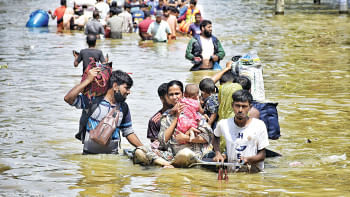
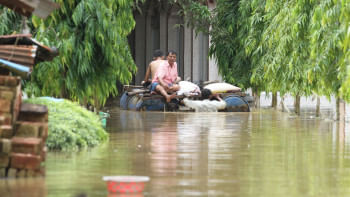


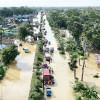
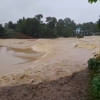



Comments